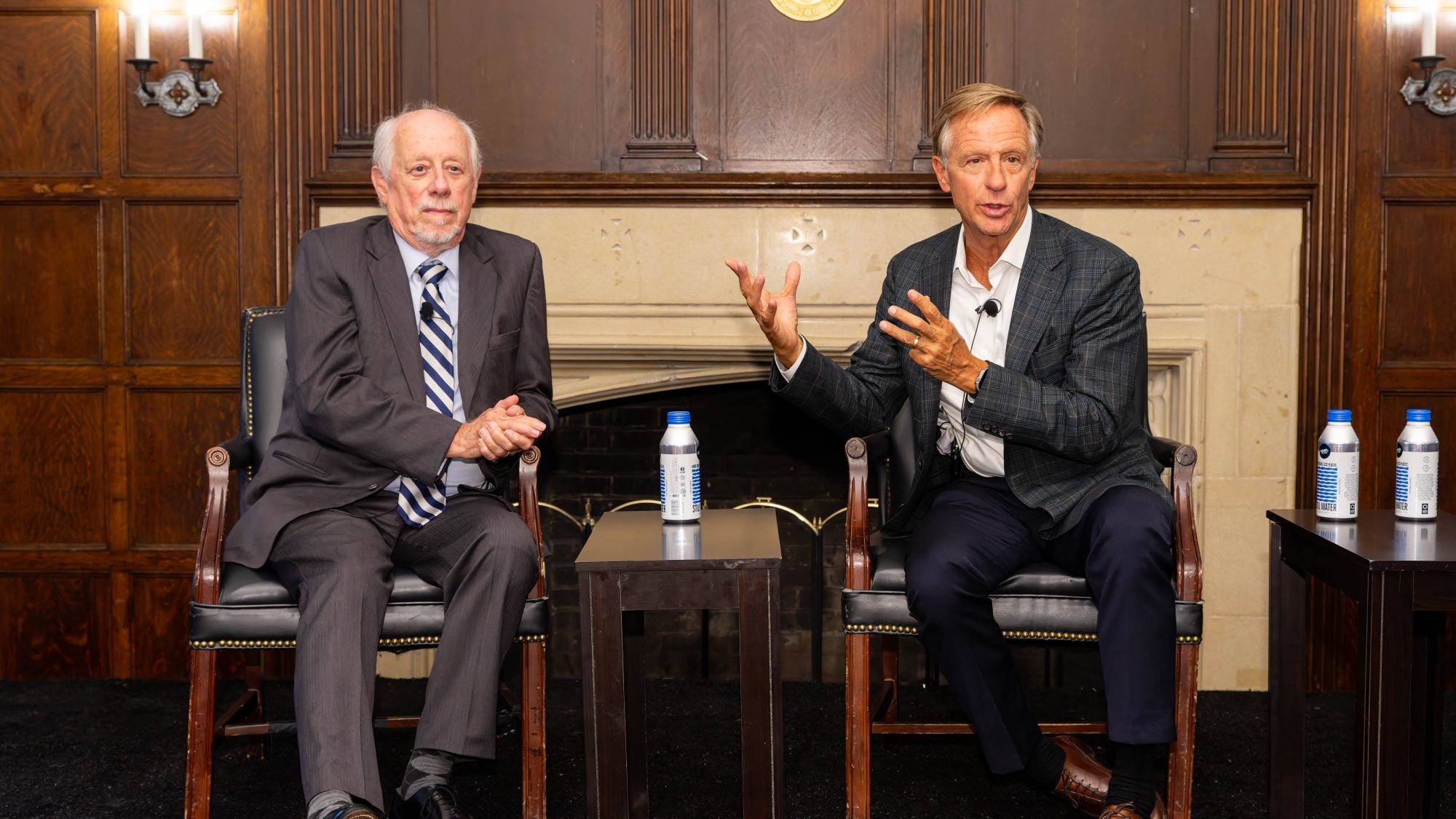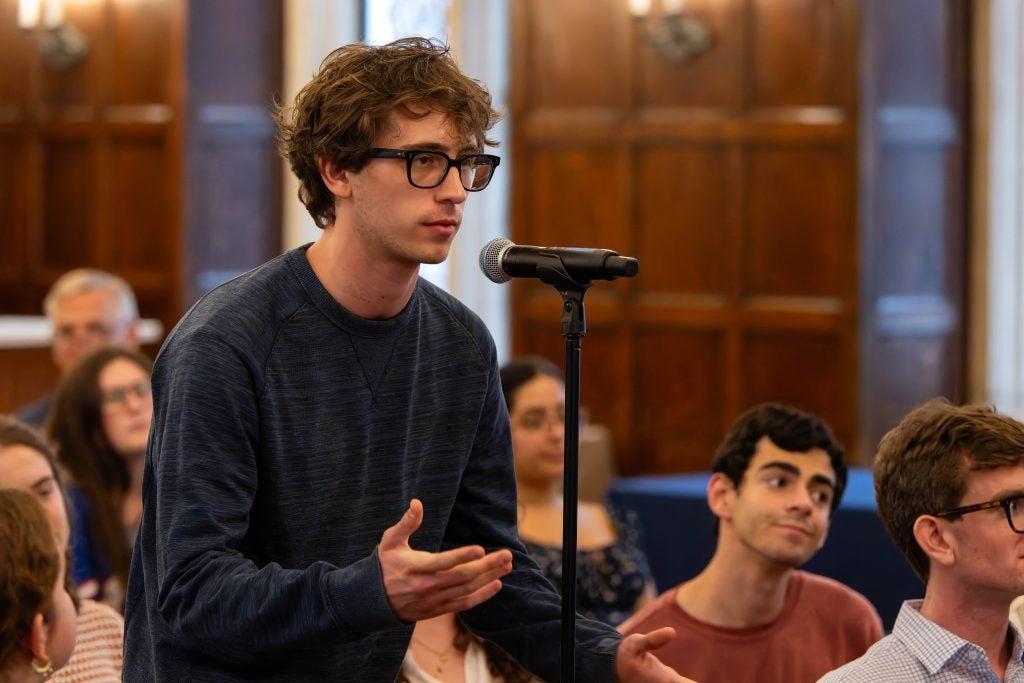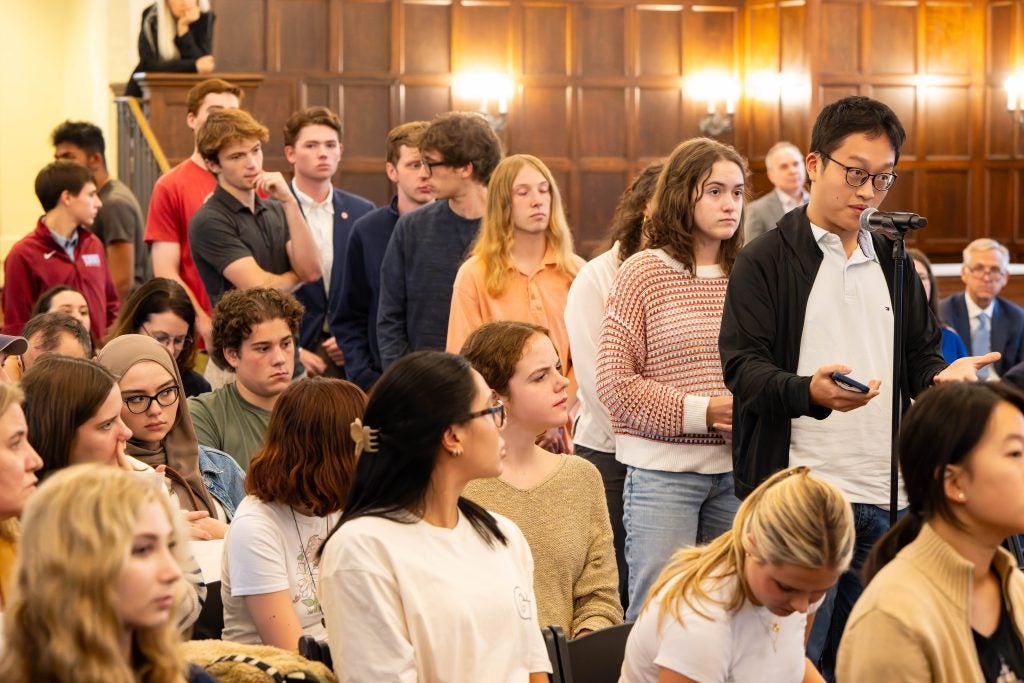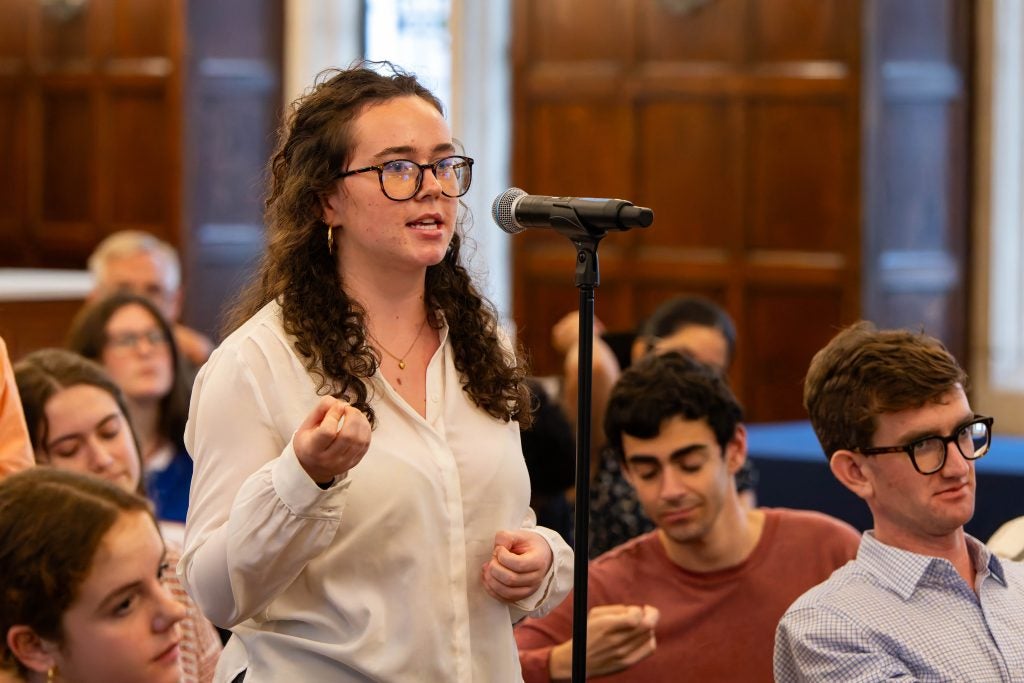Georgetown hosted former Tennessee Governors Phil Bredesen and Bill Haslam in a Sept. 23 event that explored how to promote dialogue across differences.
Bredesen and Haslam, who come from opposite sides of the aisle, co-host the popular “You Might Be Right” podcast, a show from the Baker School of Public Policy and Public Affairs at the University of Tennessee that explores contemporary issues with guests from across the ideological spectrum.
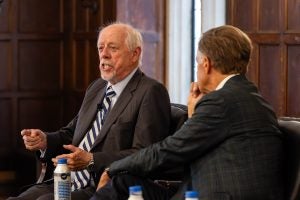
The gathering was the first signature event of the Georgetown Dialogues Initiative (GDI), a new initiative that promotes civil discourse and exposes students to respectful dialogue between people with opposing viewpoints.
“We were honored to host the former governors at the first signature event for the Georgetown Dialogues Initiative,” said Vice Provost for Education David Edelstein. “Governors Bredesen and Haslam modeled for us what we want our students to do in the classroom and in their own lives beyond Georgetown as they use civil discourse to be effective leaders and changemakers.”
In the Copley Formal Lounge, the two former governors discussed how they developed their political identities before sharing their differing views on immigration and education reform in the U.S. In sharing their beliefs, Bredesen and Haslam modeled how they engage in civil discourse in their podcast despite their ideological differences.
Following their conversation, Abigail Marsh, a psychology professor in the College of Arts and Sciences, joined the two governors in a moderated discussion on how to engage in civil discourse.
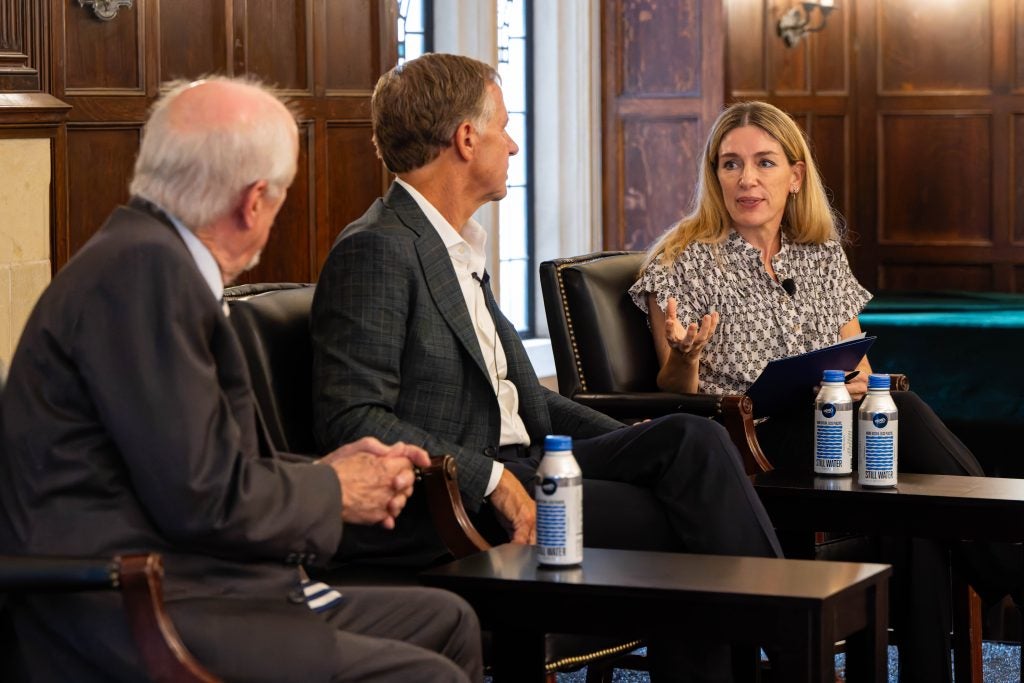
Haslam, a Republican, credited both his and Bredesen’s business backgrounds for preparing them to hold public office and seek common ground with people from all backgrounds.
“We both come from a results-oriented background that said that the challenge is to solve the problem. It’s not to beat the other guy,” Haslam said.

Haslam also explained how difficult governing can be and how important it is to seek opinions from people with different beliefs.
“One of the things I think you walk away from this incredible university is this: To try and understand the other side of the argument because I guarantee you there’s a good argument,” Haslam said. “Now you might not agree with it, but listen enough to understand the other side of the argument. It will be worth your time.”
Building off of Haslam’s remarks, Bredesen, a Democrat, emphasized how bipartisan policy solutions are often the most effective, citing the bipartisan establishment of Social Security and how as governor he reformed Tennessee’s healthcare system with ideas from progressive and conservative thinkers.
The Tennesee Democrat also told the audience how important face-to-face interactions are in having civil conversations with others.
“With social media, with the internet and people being at home during COVID, you’re losing some of that personal contact,” Bredesen said. “To see another person as another person who’s deserving of respect, you have to see the other person. You have to interact with them.”
Both Haslam and Bredesen explained how campaigning for public office forced them out of their comfort zones and put them in contact with people from all backgrounds across Tennessee. These interactions allowed them to empathize with people who were different from them and see what they cared about as voters, they said.
“It made me a vastly better governor than I would have been without doing them,” Bredesen said. “You just had so much more understanding of how people make decisions and what kinds of things are important to them in their lives.”
At the end of the conversation, Bredesen and Haslam took questions from students, who asked questions ranging from the merits of the two-party system to their opinions on gun control.
